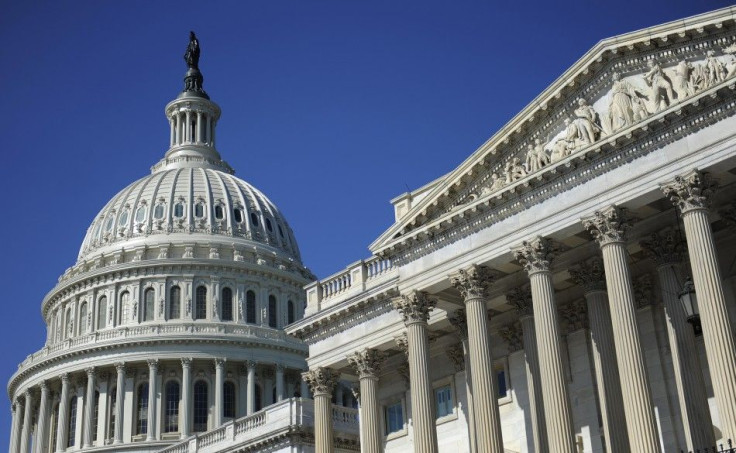Payroll Tax 'Deal is Done' in Victory for Obama

(Reuters) - U.S. lawmakers Wednesday reached a sweeping tax cut deal that provides a victory to Democrats and frees Republicans of an issue that threatened to stalk them to the November elections.
The deal is done, a top Republican aide said after the main negotiators from both parties worked out their remaining differences. A senior Democratic aide said the top negotiators had finished their work.
The negotiated accord still awaits formal approval, possibly later in the day, by a special bipartisan committee of members of both houses.
The two chambers are expected to approve the deal by Friday, before lawmakers leave for a week-long recess.
The agreement would extend the payroll tax cut, first implemented in 2011 at the request of President Barack Obama, until the end of this year for about 160 million U.S. workers.
Passage would end a battle that has raged since last year over legislation that some economists say is vital to keeping the U.S. recovery on track by injecting up to $130 billion into the economy through consumer spending.
With the 2012 presidential and congressional campaigns heating up, Republicans badly wanted to bury an issue that has left them divided and at risk of angering voters if they continued to be perceived as trying to kill the payroll tax cut.
We're determined to put this to an end, first-term Rep. Renee Ellmers, R-N.C., told reporters. One of 20 negotiators on the payroll tax cut legislation, Ellmers said Republicans now want to move on to the real issues: the president's failed policies.
Congressional Democrats seized the moment to bask in a victory they hope will boost Obama's November re-election chances just as an improving economy is helping his poll numbers. Democratic aides described House Republican leaders' new willingness to let the payroll tax cut be extended and to do so without offsetting spending cuts by saying they had caved and folded.
Long known as the party of low taxes, Republicans initially fought the payroll tax cut that largely helped low- and middle-income workers, saying temporary tax cuts did little to stimulate the economy.
MAJOR TURNING POINT
But with economists disagreeing and Democrats simultaneously forcing Republicans to go on record in favor of tax cuts for the wealthy, Republicans found themselves in a losing situation.
As their leaders tried to move into winning territory, it only stoked Republican infighting as conservatives, including Tea Party movement activists, resisted handing Democrats a victory.
Greg Valliere of Potomac Research Group, a private group that tracks Washington for investors, called the tax deal, which also extends unemployment benefits a major turning point for the U.S. economy.
It greatly increases the odds that the economy will continue to expand, which should give a boost to Obama's re-election chances, Valliere told clients.
In addition, Valliere said, it drags House Republicans, who include many aligned with what has been seen as a rigid Tea Party movement, into the world of compromise.
As evidence, Rep. Joe Walsh, R-Ill.,a Tea Party activist, has embraced the tentative deal, even though it would add about $100 billion to U.S. budget deficits - something that normally would be anathema to the Tea Party.
Analysts said that opinion polls showing public disgust with a gridlocked Congress may have helped drive lawmakers, many of whom are up for re-election this year, toward a deal.
A lot of people in Washington, D.C., know that Congress is not enjoying such a great reputation and here's an opportunity to reach agreement to show that we can get our work done, said Sen. Max Baucus, D-Mont., one of the negotiators.
© Copyright Thomson Reuters 2024. All rights reserved.











